

We are privileged to have the support and collaboration of renowned institutions worldwide, including Purdue University, Caltech, Georgia Tech, Khalifa University, Graz University, SUPSI, Tampere University, Imperial College London, Turku University, Unimore, University of Waterloo, Universidade do Minho, McMaster University, University of Bologna, UNSW Sydney, Technion - Israel Institute of Technology, The University of Texas at Dallas, New York University Abu Dhabi, and the University of Manitoba. Our advisory board comprises world-renowned experts in secure and resilient autonomous systems, ensuring the highest quality and relevance of the workshop.
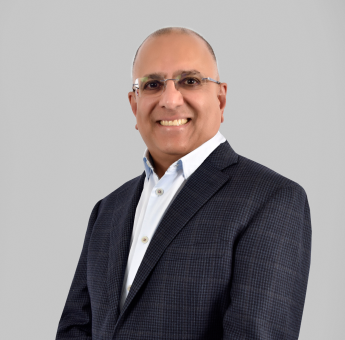
Shreekant (Ticky) Thakkar

Jasmina Midzic Conference Chair
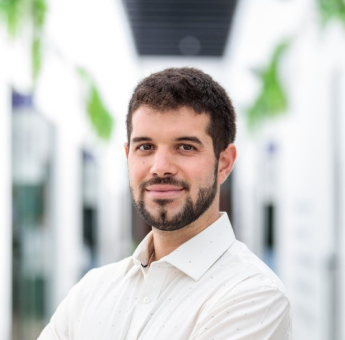
Ramzi Sharif

Andrew Chopra

Martin Andreoni
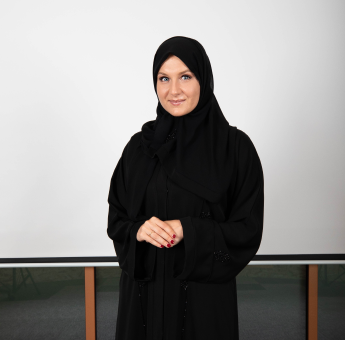
Oksana Sandulenko

Rahul Lakhawat
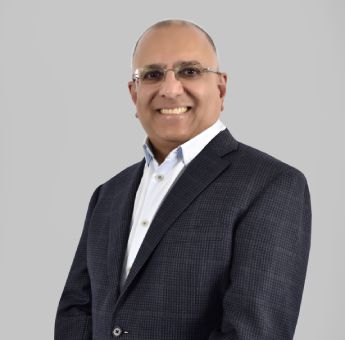
Shreekant (Ticky) Thakkar SSRC
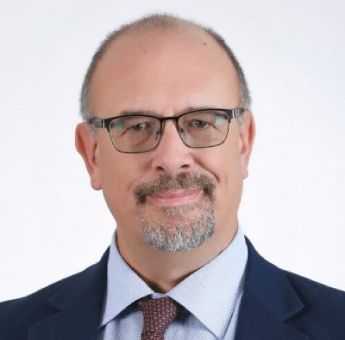
Ernesto Damiani Kalifa University
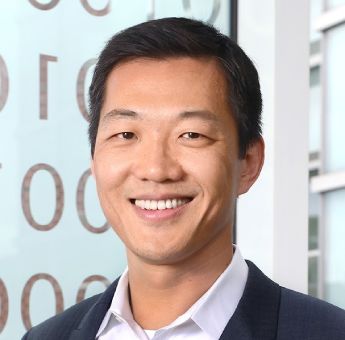
Wenke Lee GeorgiaTech
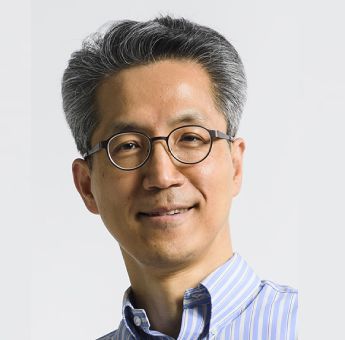
Inseok Hwang Purdue University
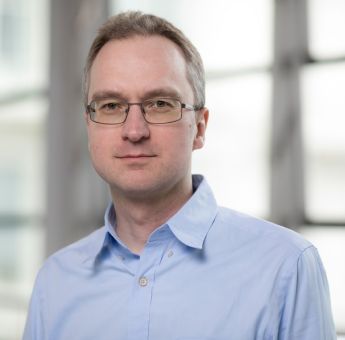
Peter Pietzuch Imperial College
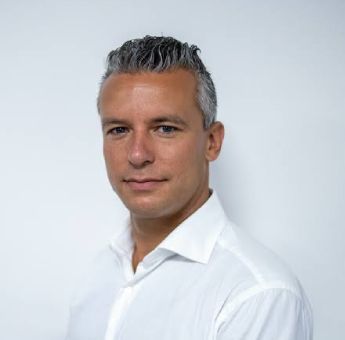
Marko Bertogna University of Modena and Reggio Emilia (Unimore)

Sandro Pinto University of Minho
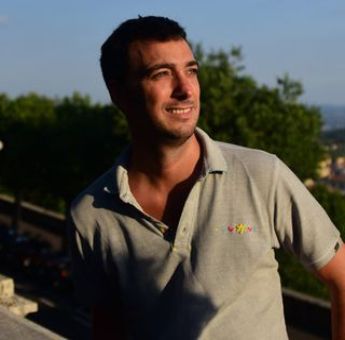
Davide Rossi University of Bologna
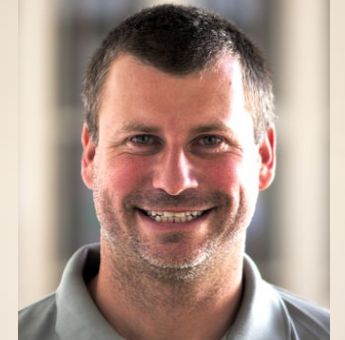
Martin Saska Czech Technical University
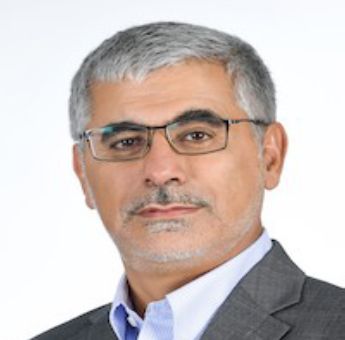
Baker Mohammad Kalifa University
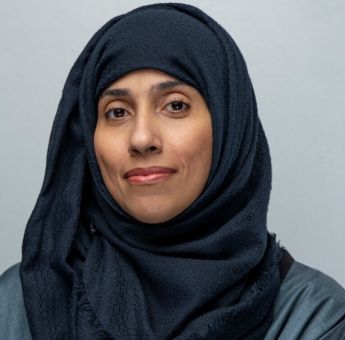
Hoda A. Alkhzaimi NYU Abu Dhabi
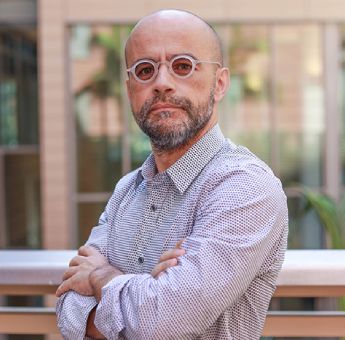
Paulo Tabuada UCLA
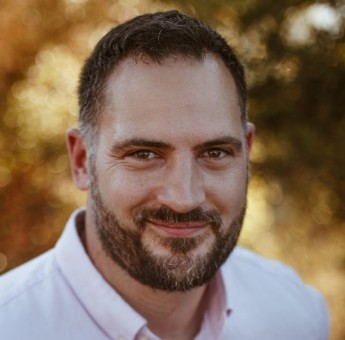
Aaron D. Ames Caltech
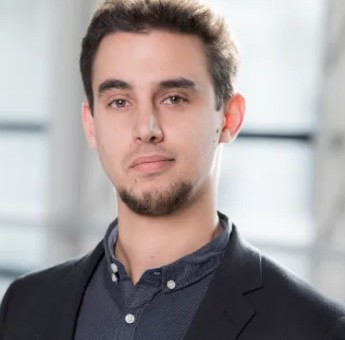
Antoine Cully Imperial College London
Bio:
Dr Shreekant (Ticky) Thakkar is Chief Research Officer at the Secure Systems Research Centre at the Technology Innovation Institute (TII), a cutting-edge UAE-based scientific research Centre and Adjunct Research Professor at Khalifa University. In this role, he is responsible for carrying out advanced research that is driving end-to-end security and resilience in cyber physical and autonomous systems of systems (swarm of drones). These includes secure technologies in silicon, edge and mobile and cloud platforms working with open-source ecosystems (Dronecode, RISC-V, Linux, Apache, ROS) and research institutions across USA, Europe, and UAE.
Thakkar’s career is punctuated by industry firsts and successes that have strengthened revenue, profit, and competitive advantage for Fortune 500 firms, as well as reach labs, start-ups, and entrepreneurial divisions.
Thakkar is a hands-on leader with an invaluable blend of strategy development and tactical execution; an implementer and dedicated "doer'' who delivers corporate vision by building, leading, mentoring, and supporting highly effective, diverse, and collaborative advanced development, engineering/software engineering teams across different geographies.
Before taking on his current role, Thakkar was Chief Scientist and Executive Vice President of Engineering and Technology at the company, now Digital14, a cyber- security leader based in the UAE. In this capacity, he was instrumental in developing an engineering organization of 500 people from a start-up team in four geographical locations, delivering two generations of innovative secure smartphones and applications, and a secure VPN appliance that contributed significantly to the company's annual revenue.
In prior roles, he served as Chief Solutions Architect at Qualcomm Data Technologies, and as the Chief Technology Officer in the Personal Computing Group and as Vice President and Fellow at HP’s Emerging Computing Lab. Earlier in his career, Ticky Thakkar completed 21 years at INTEL Corporation in roles including INTEL Fellow and Chief Systems Architect - Mobile Systems Technologies.
Thakkar holds a PhD and an MSc, both in Computer Science, from the University of Manchester. He also earned a BSc in Computer Science and Statistics from University College London. He holds 87 patents and has published 33 papers and over 5000 citations in Google Scholar.
Bio:
Ernesto Damiani is a prominent computer scientist and academic who has made significant contributions to artificial intelligence, cybersecurity, and big data analytics. He is a Full Professor at the Università degli Studi di Milano, leading the Secure Service-oriented Architectures Research (SESAR) Lab. Additionally, he holds leadership positions at Khalifa University in the UAE, including Senior Director of the Artificial Intelligence and Intelligent Systems Institute and Director of the Center for Cyber-Physical Systems (C2PS).
Damiani's research interests cover many topics, including cyber-physical systems, AI, machine learning, edge/cloud security, and big data analytics. He has authored over 400 peer-reviewed articles and books and is recognized as one of Europe's most prolific computer scientists.
Among his many accolades, Damiani has received an honorary doctorate from the Institut National des Sciences Appliquées de Lyon, the Stephen Yau Award, and the Chester-Sall Award. He is also a senior member of IEEE and a distinguished scientist at ACM.
Ernesto Damiani's work has had a profound impact on the academic community, as evidenced by his high citation count. His research has been cited over 25,000 times on Google Scholar, and his h-index of 667 reflects his work's broad and enduring influence.
For more details on his work and contributions, you can visit his profiles on Khalifa University, XPRIZE Foundation,
Bio:
Wenke Lee is a distinguished cybersecurity expert and academic. He is the John P. Imlay Jr. Chair of Software and Professor of Computer Science at the Georgia Institute of Technology and the Executive Director of the Institute for Information Security & Privacy (IISP) at Georgia Tech. Lee has been with Georgia Tech since 2001 and has played a crucial role in advancing the institution's leadership in cybersecurity research and education.
Lee's research, a source of inspiration for the academic community, is primarily focused on systems and network security. His work includes botnet detection, malware analysis, virtual machine monitoring, mobile security, and detecting and mitigating information manipulation on the Internet. With over 100 published articles, many of which are highly cited, Lee's academic contributions are widely recognized. In addition to his academic work, Lee co-founded Damballa, Inc. in 2006, a company specializing in detecting and mitigating advanced persistent threats.
Lee, a recipient of several prestigious awards throughout his career, including the Internet Defense Prize from Facebook and USENIX and an NSF Career Award, is not just a passive observer in the field of cybersecurity. He is actively involved in advisory roles, contributing to the broader field of cybersecurity through various professional and academic boards. This active involvement should reassure you of his ongoing contributions.
For more detailed information on Wenke Lee's contributions and current projects, you can visit his profile at Georgia Tech (SCP@GeorgiaTech) (Georgia Tech) (CompSci Involvement).
Bio:
Inseok Hwang is a professor at the School of Aeronautics and Astronautics at Purdue University, where he also leads the Flight Dynamics and Control/Hybrid Systems Laboratory. His research focuses on multiple-vehicle systems, including Unmanned Aerial Vehicles (UAVs), satellites, mobile robots, and air traffic control systems. He is known for his work in controlling decentralized systems, path planning, and conflict detection, which are critical for coordinating the motion of multiple vehicles to avoid conflicts and achieve their goals efficiently.
Hwang earned his Ph.D. in Aeronautics and Astronautics from Stanford University, where he specialized in hybrid systems for multiple-vehicle control. He has held previous positions at the Korea Air Force Academy and is actively involved in several professional organizations, including the American Institute of Aeronautics and Astronautics (AIAA) and IEEE. He has received several notable awards, including the NSF CAREER Award in 2008, and he was selected by the National Academy of Engineering for the Frontiers of Engineering Symposium.
For more details on his work and contributions, you can visit his profile on Purdue University's School of Aeronautics and Astronautics website and the CERIAS website.
Bio:
Peter Pietzuch is a Professor of Distributed Systems at Imperial College London, leading the Large-scale Data & Systems (LSDS) group. His research focuses on designing and engineering scalable, reliable, and secure data-intensive systems, particularly in performance, data management, and security. Pietzuch serves as the Director of Research in the Department of Computing at Imperial College and is also a Co-Director of Imperial's I-X initiative, which focuses on artificial intelligence, machine learning, and data science.
Before joining Imperial College, Pietzuch was a post-doctoral researcher at Harvard University. He earned his Ph.D. from the University of Cambridge and was part of the Computer Laboratory's Opera group. His work has significant contributions to the field of distributed systems, and he has been involved with various research projects and collaborations, including work with Microsoft Research Cambridge.
For more details on his work, visit his profile at Imperial College London or the Alan Turing Institute.
Bio:
Marko Bertogna is a Full Professor at the University of Modena and Reggio Emilia (UNIMORE), leading the High-Performance Real-Time (HiPeRT) laboratory. His research focuses on high-performance real-time systems, particularly those based on multi- and many-core devices, with applications in autonomous driving and industrial automation.
Bertogna, a Ph.D. holder in Computer Science from the Scuola Superiore Sant’Anna of Pisa, has a remarkable academic career. His leadership is evident in his coordination of multiple European Union and industrial projects, securing significant funding for his research group. His achievements include authoring over 100 research papers and receiving several Best Paper Awards, making him a leader in his field.
In addition to his academic roles, Bertogna is the CEO and founder of the university spinoff HiPeRT Srl, and co-founder of Minerva Systems, further bridging the gap between research and industry (HiPeRT) (UniMore) (Motor Valley ) (ICCC).
Bio:
Sandro Pinto is an Associate Research Professor at the University of Minho in Portugal, where he is involved in the Centro ALGORITMI. His research focuses primarily on operating systems, virtualization, and security for embedded and IoT systems. He has a solid academic background, holding a Ph.D. in Electronics and Computer Engineering. He has published over 100 scientific papers in top-tier conferences and journals, including IEEE S&P Oakland and USENIX Security.
Complementing his academic endeavors, Pinto has played a pivotal role as a co-founder of several initiatives, notably the open-source Bao Project. This project, which focuses on developing a lightweight hypervisor for embedded systems, is a testament to Pinto's leadership and influence. His active participation in high-profile conferences, including Black Hat and RISC-V Summit, further underscores his impact in the field.
Pinto's work is characterized by his exploration of cutting-edge topics, such as the security of IoT devices, trusted execution environments (TEEs), and the use of RISC-V architectures in embedded systems. His forward-thinking approach is evident in his contributions to understanding and mitigating security vulnerabilities in microcontrollers and IoT devices, cementing his reputation in the field.
For more details about his work and publications, visit his profiles on the Centro ALGORITMI and his personal website (Centro ALGORITMI—Universidade do Minho) (Sandro Pinto) (Ciência Vitae) (Inesc-ID) (Embedded OSS Summit).
Bio:
Davide Rossi is an Associate Professor at the University of Bologna, specifically in the Department of Electrical, Electronic, and Information Engineering "Guglielmo Marconi." His research focuses on digital VLSI architectures and multicore systems-on-chip (SoCs). He is particularly interested in reconfigurable architectures, low-power design techniques, and fault tolerance in nanometer technologies. His work also extends to developing advanced resource management strategies for embedded multicore systems, including optimal allocation and scheduling, memory, and power management.
Rossi has a solid academic background, earning his Ph.D. from the University of Bologna. He has been actively involved in several research projects, often in collaboration with industry, and has published extensively in these areas. Additionally, he has served in various academic roles, including as a consultant for STMicroelectronics, where he worked on reconfigurable computing.
For more information about his research and publications, visit his profile on the University of Bologna's website.
Bio:
Martin Saska, a prominent researcher and academic in robotics, is particularly known for his work with autonomous cooperating micro aerial vehicles (MAVs). As a full professor at the Czech Technical University (CTU) in Prague, he leads the Multi-Robot Systems (MRS) group. His research, which focuses on the development of autonomous drone swarms, has practical applications in real-world environments, inspiring both indoor and outdoor scenarios without the need for external localization systems.
Saska obtained his MSc. from the Czech Technical University in 2005 and completed his Ph.D. at the University of Wuerzburg, Germany, in 2009. He has collaborated with several leading institutions, including the University of Illinois at Urbana-Champaign and the University of Pennsylvania, where he worked with the GRASP lab.
His team at CTU, under his leadership, has achieved significant success in international robotics competitions, bringing pride to the Czech Technical University and the robotics community. Their multiple wins at the Mohamed Bin Zayed International Robotics Challenge (MBZIRC) and the DARPA Subterranean Challenge are a testament to their excellence. Saska, with over 150 publications to his name, has been recognized with several best paper awards, further solidifying his international recognition.
You can explore his work on the Multi-Robot Systems website or the Czech Technical University website for more information.
Bio:
Dr. Baker Mohammad is a Professor and the Director of the System-on-Chip (SoC) Lab at Khalifa University, where he also serves as the Acting Chair of the Department of Computer Communication Engineering. He holds a Ph.D. in Electrical and Computer Engineering from the University of Texas at Austin, an M.Sc. from Arizona State University, and a B.Sc. from the University of New Mexico.
His research interests include VLSI and chip design, hardware accelerators for AI and security applications, emerging memory technologies like memristors, and in-memory computing. Dr. Mohammad has made significant contributions to the field, authoring over 150 peer-reviewed publications, including more than three books, and holding more than 18 US patents. His work has earned him multiple awards, including the IEEE TVLSI Best Paper Award and the Qualcomm Qstar Award for excellence in performance and leadership.
Dr. Mohammad is also actively involved in various technical committees and editorial roles, including as an associate editor for IEEE Access and IEEE Transactions on VLSI. He has been a key figure in several research projects, such as the development of a RISC-V-based secure flight computer system in collaboration with the Technology Innovation Institute (TII) (Khalifa University) (Khalifa University).
Bio:
Hoda Alkhzaimi, a leading figure in cybersecurity and cryptology, is a Research Assistant Professor at New York University Abu Dhabi (NYUAD) and the Director of the Center of Cyber Security at NYUAD. She is also the visionary founder and director of the Emerging Advanced Research Acceleration for Technologies, Security, and Cryptology (EMARATSEC), a pioneering research lab and center dedicated to advanced security technologies.
Dr. Alkhzaimi's academic journey is marked by her Ph.D. in Cryptanalysis from the Technical University of Denmark (DTU). Her profound expertise in cryptology, spanning cryptanalysis, the construction and validation of security hardware and software components, and the development of trusted security architectures for diverse environments and industries, is a testament to her academic prowess and research contributions.
Dr. Alkhzaimi's research interests span a wide range of topics, including space and aerospace security, UAV security, the analysis of cryptographic primitives, and the integration of these primitives into cybersecurity architectures. She is also deeply involved in initiatives related to emerging technologies, digital economies, and inclusive global semiconductor infrastructure development.
In addition to her academic and research roles, Dr. Alkhzaimi has served in various capacities in national and international security initiatives and advocates for equitable access to knowledge and technology development, mainly supporting women and vulnerable groups in STEM fields.
You can visit her profiles on NYUAD's website and World Economic Forum for more information.
Bio:
Dr. Paulo Tabuada is a distinguished Electrical and Computer Engineering Professor at UCLA, where he also holds the prestigious Vijay K. Dhir Chair in Engineering. His research is primarily focused on the intersection of control systems, cyber-physical systems (CPS), formal methods, and security. He places a particular emphasis on real-time, embedded, networked, and distributed systems, a key aspect of his work that informs his research.
Dr. Tabuada is the director of the Cyber-Physical Systems Laboratory (CyPhyLab) at UCLA, where his work has significantly contributed to the modeling, analysis, and control of CPS. His accolades include the IEEE Fellowship, the George S. Axelby Award, and the Donald P. Eckman Award, highlighting his contributions to control systems and CPS.
He earned his Ph.D., M.S., and B.S. degrees from the Instituto Superior Técnico in Lisbon, Portugal. His extensive publication record includes influential papers in top-tier journals, reflecting his leadership in the development of robust and secure control systems for CPS (UCLA Samueli) (UCLA Electrical Engineering) (Garrick Risk Institute).
Bio:
Dr. Aaron D. Ames is the Bren Professor of Mechanical and Civil Engineering and Control and Dynamical Systems at the California Institute of Technology (Caltech). He is well-known for his pioneering work in robotics, nonlinear control, hybrid systems, and cyber-physical systems (CPS). His research mainly focuses on developing theoretical foundations and experimental realizations for bipedal robots to achieve human-like walking in robotic systems.
Dr. Ames completed his B.S. in Mechanical Engineering and B.A. in Mathematics from the University of St. Thomas in 2001. He earned his M.A. and Ph.D. in Electrical Engineering and Computer Sciences from the University of California, Berkeley in 2006. Before joining Caltech, he held faculty positions at the Georgia Institute of Technology.
At Caltech, Dr. Ames's leadership at the Advanced Mobility and Bipedal Experimental Robotics (AMBER) Lab is instrumental in shaping the future of robotics. Under his guidance, the team focuses on creating and testing new robotic locomotion technologies. His contributions to the field have been recognized with several prestigious awards, including the IEEE Fellowship and the Donald P. Eckman Award.
You can visit his Caltech profile or the AMBER Lab website for more information.
Bio:
Dr. Antoine Cully is a Reader (Associate Professor) in the Department of Computing at Imperial College London, where he leads the Adaptive and Intelligent Robotics Lab. His research focuses on developing learning algorithms that enable robots to adapt to unforeseen situations, such as mechanical damage, and to optimize their behavior autonomously.
Dr. Cully's work is not just at the intersection of artificial intelligence and robotics. It is redefining it. His research in Evolutionary Robotics, Stochastic Optimization, and Artificial Neural Networks has gained significant recognition, including a publication in Nature. This paper, which featured his work on robots that can adapt like animals, received the "Outstanding Paper 2015 Award" from the International Society for Artificial Life, underscoring the profound impact of his research.
He obtained his M.Sc. and Ph.D. degrees from Pierre and Marie Curie University in Paris, focusing on robotics and artificial intelligence. After completing his Ph.D., Cully joined Imperial College London, where he has continued advancing the adaptive robotics field.
You can visit his profile at Imperial College London or his website for more information.